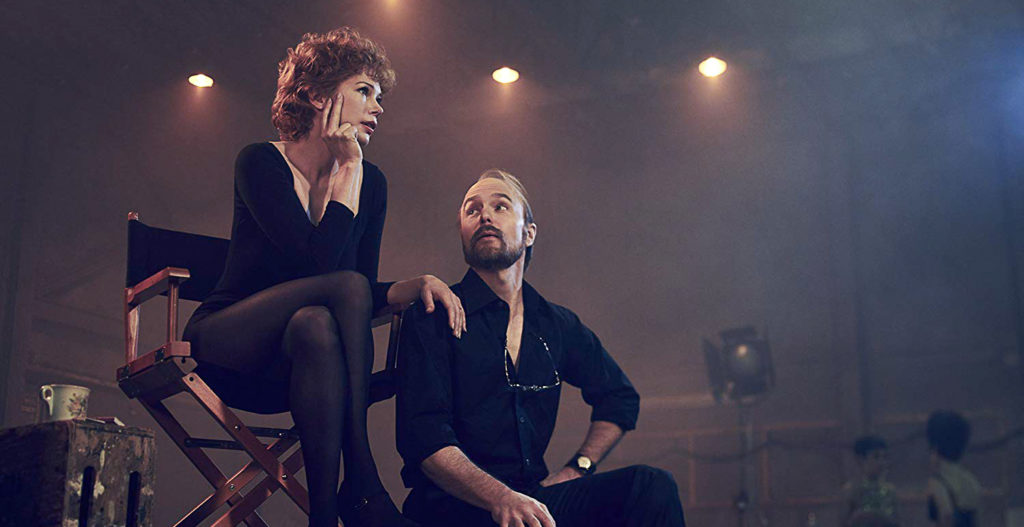
On Tuesday, FX released the first episode of its new biographical drama show “Fosse/Verdon,” which profiles the unique creative, personal and romantic relationship between Bob Fosse and Gwen Verdon.
Fosse, portrayed in the series by Sam Rockwell (“Three Billboards Outside Ebbing, Missouri”), was a dancer, choreographer and filmmaker in the mid-20th century who would go on to be remembered as one of the greatest and most versatile directors of all time.
Verdon, portrayed by Michelle Williams (“Manchester by the Sea”), was one of the most acclaimed Broa dway performers of the 20th century. She married Fosse in 1960 and quickly became his muse and artistic partner, helping him choreograph his plays and films and accelerating his
creative process.
The pilot episode features the aspects of the central relationship which made it such a compelling and productive partnership, as well as the factors which ensured that it was doomed to fail from the beginning.
There are moments of tangible love and devotion between Fosse and Verdon. In these scenes, one cannot help but be touched by what one sees on the screen. There are also, however, dreadful moments which remind the viewer of just how complicated the story of this artistic duo is. In these moments, the viewer feels a deep, personal frustration with the characters on screen.
The pilot episode’s greatest strength is its emotional effectiveness; at every turn, the viewer feels exactly what the writers want one to, and one feels it intensely.
Still, not every aspect of the show is handled tactfully. The writers go a little too far in trying to demonstrate how dependent Fosse is on Verdon in his work. The second half of the pilot is dedicated to the beginning of Fosse’s work on the 1972 musical film “Cabaret.”
Fosse travels to Munich to film the movie, and at first leaves Verdon at home to pursue her own work and to care for their daughter. The filming process quickly stalls, however, and the writers make it very obvious that the issue is Verdon’s absense from the set. Fosse asks Verdon to come to Germany to help him, and suddenly all is well again. The whole narrative is a little too obvious.
Still, it does the job, and one can understand why the writers went to such great lengths to make their point clear — as Fosse’s professional dependence on Verdon is essential to his character
development.
Fosse’s character is fantastically written and performed. The writers strike a perfect balance between making Fosse sympathetic and highlighting his more despicable qualities. In the pilot, Fosse struggles to deal with past trauma while also suffering under a lack of professional identity independent of his wife. In his darkest moments, he is plagued by visions of his difficult childhood, and he struggles to remain faithful
to Verdon.
Throughout most of the pilot, he is also struggling to prove himself as a film director and to escape the shadow of his wife. Early in the episode, several characters suggest that Fosse can only be successful with the help of his wife, a notion which he seems determined to disprove.
While Fosse’s dependence on Verdon is based on historical fact — Fosse did achieve most of his artistic success while working with Verdon — the character’s insecurity about his professional dependence on his wife feels like a choice made by the writers in an effort to comment on masculinity and the expectation that men be strong and independent.
The series proves less progressive in its development of Verdon as a character. While Verdon is portrayed as powerful, effective and independent — in contrast to Fosse’s dependence on her — she feels a little one-dimensional. The viewer never really ponders what she is thinking or why she does what she is doing, because her motives and feelings are portrayed as less complicated than Fosse’s.
To be fair to the writers, the pilot episode ends on what could be a major junction in Verdon’s character development. It is therefore possible that the writers are saving all of her development for the coming episodes, but if they do not improve on their effort in the pilot, it will be a shameful missed opportunity to bring an extremely complicated real-life character to the screen.
“Fosse/Verdon” is an emotionally intelligent, visually striking drama with fascinating characters and excellent writing. Though the pilot does have some holes that the writers will need to plug in future episodes, the series is positioned well to be one of the best new shows of 2019, and it is well worth following.
